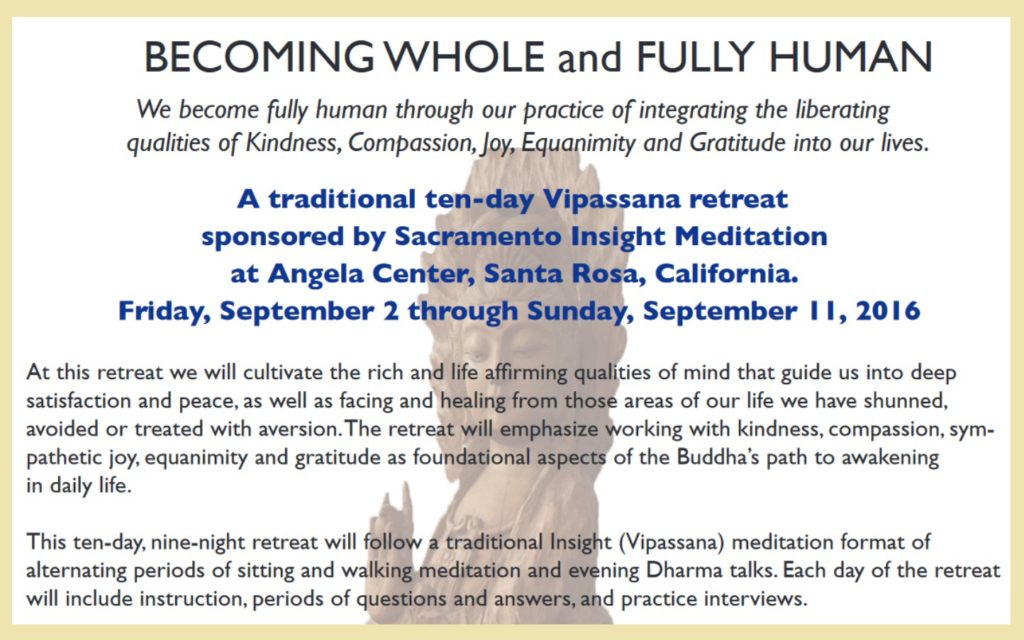Death and Dying as a Teaching
Just like in the Buddha’s time, death is not an easy topic for people to consider. Fear, guilt, denial, and/or sadness all come to the surface when we speak of our own death, or the deaths of those close to us. This is exactly why the Buddha recommended that we don’t turn away, but rather make this fact of our existence, a subject of frequent reflection. Maranasati, or Mindfulness of Death is a reflection on our death and the deaths of others. Death of course, is inevitable, and when we can to begin to view it with the same acceptance as birth, we start the process of uprooting ignorance and delusion. We will discuss how we can begin incorporating a “friendly” attitude towards death in our daily lives.
If you would like to download this talk, please right click and select “save as” here.

